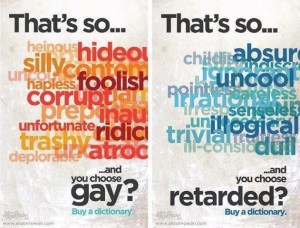Another summer marking season, another article in Times Higher Education soliciting student “exam howlers”. This is predictable and wearying and I can’t help but feel that we keep having this exact same conversation about why it’s bad to publicly mock and shame our students. Kirsty Rolfe wrote about talking teaching and making mistakes and I wrote about being someone’s worst student a couple of years ago, but apparently it bears repeating.
There was one respect alone in which Philip was recognized as a man of distinction, though only within the confines of his own Department. He was a superlative examiner of undergraduates: scrupulous, painstaking, stern yet just. No one could award a delicate mark like B+/B+?+ with such confident aim, or justify it with such cogency and conviction.
David Lodge, Changing Places: a tale of two campuses
Like Philip, I try to mark carefully and, being a perfectionist, probably spend far too much time thinking about whether a piece of work should be awarded a 62 or a 64 (let alone a 68 or a 70). Marking can be a joyless task but there’s only one paper that I’ve genuinely been annoyed at marking – one in which the student, in some kind of act of teenage bravado-slash-poor judgement, declared that he wrote the whole thing while hungover and didn’t care. After a week of solid marking, I have to confess that I, in turn, found it difficult to care about this student’s work. But that was a very rare case.
Most of the “exam howlers” seem to be inexpert attempts to apply frameworks and terminology, and while frustrating to see, it’s not something I think should be publicly mocked. I don’t think I have it in me to fault someone for trying – I try to only get irritated when someone truly doesn’t try. And it’s not like the people marking student work have never dropped a stinker themselves. I’ve really liked the #myownexamhowlers hashtag on twitter (storify here).
I don’t remember any specific exam howlers I made – I think I’ve blanked out the entire experience of exams with some degree of success – but a tutor did note that an essay took “a curiously scattergun approach”. I consistently left sweary, abusive messages (e.g. [LOOK UP THE FUCKING DEFINITION YOU FUCKING IDIOT]) to myself in draft chapters I sent to my supervisor (pro tip: use unusual punctuation marks around these to make it easier to use ctrl+f to locate and delete them later). Finally, when I was printing my ~350 page thesis, I dropped the entire thing, hurriedly tried to shove the papers in the right order, failed miserably, and duly presented one of my examiners with a thesis containing a wodge of pages in the wrong order. A true case of snatching defeat from the jaws of victory!
Talking about our own exam (and otherwise) howlers opens up a far more interesting conversation. I don’t want to be an unassailable figure of perfection for my students, doing something they can never hope to aspire to. Instead I want to say that I, too, find some things difficult, have fumbled around trying to use the right terminology, have clumsily applied a framework or model, have missed something glaringly obvious. These days I have the luxury of sending my work to knowledgeable colleagues and friends, and my work will be peer-reviewed before publication. Students, especially those working under closed book exam conditions, don’t have that option.
So let’s think a bit more kindly of our students. How many of us working under those conditions, grappling with complex, unfamiliar terminology and ideas that we’d perhaps encountered for the first time only weeks ago, panicky and underslept and stressed, would turn out polished, publishable work? We’ve had years – decades – to hone our academic thinking and writing. They haven’t. If we can’t be kinder, let us at least be more discreet in our unkindness.

